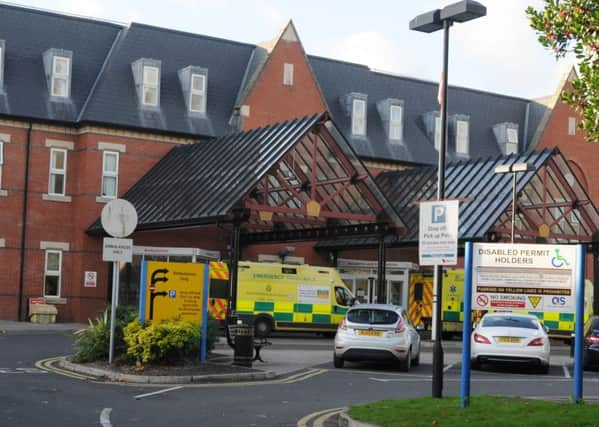No end in sight for busy A&E problem


Analysis of NHS England figures by the Nuffield Trust have found that a third of 150 hospital trusts in England warned last month that they needed urgent action to cope, while seven of the 50 issued alerts announcing they were unable to give patients comprehensive care.
It is unclear whether Wrightington, Wigan and Leigh NHS Foundation Trust (WWL) was one of the trusts to issue alerts to NHS England, but it has on a number of occasions issued warnings to residents to stay away unless in cases of serious injury or illness.
Advertisement
Hide AdAdvertisement
Hide AdThe most recent of these warnings was issued on Monday which was attributed to two wards having being closed over the festive period because of norovirus, leading to up to six hour waits for non-emergency cases.
On Thursday, the Royal Preston Hospital issued a warning about its A&E being “extremely busy” amid reports that theatre recovery departments were being opened as makeshift wards and the Day Case Unit being used for A&E admissions.
Nigel Edwards, chief executive of the Nuffield Trust, warned the situation could deteriorate further in the next two weeks.
He told BBC Radio Four’s Today programme: “Anecdotally what you are hearing from chief executives of trusts is that they are experiencing very, very high levels of pressure in their A&E departments. The growth seems to be way above what you might expect from what’s happened from the population.
Advertisement
Hide AdAdvertisement
Hide Ad“People feel that they can’t get to see their GP. The population is getting older and sicker, but I don’t think that’s the entire reason behind it.
“The other big pressure is the ability to discharge patients. If you can’t get patients out of the back of the hospital, home, then obviously, the whole system begins to seize up.
“As we know there are major problems in social care. But also NHS community services. The ability of hospitals to get people out is still really tricky.
“We felt, given the numbers of delayed transfers of care, this number of patients waiting to go elsewhere, the increase in norovirus, the obvious increase in activity that we have seen over the past year, and pressures on the workforce, which are absolutely unremitting, they are reasons to be really quite concerned.
Advertisement
Hide AdAdvertisement
Hide Ad“The real crunch point generally comes in week two or three after the Christmas break. I think there are early signs that there is a problem.”
The situation has resulted in operations being cancelled and patients left waiting on trolleys.